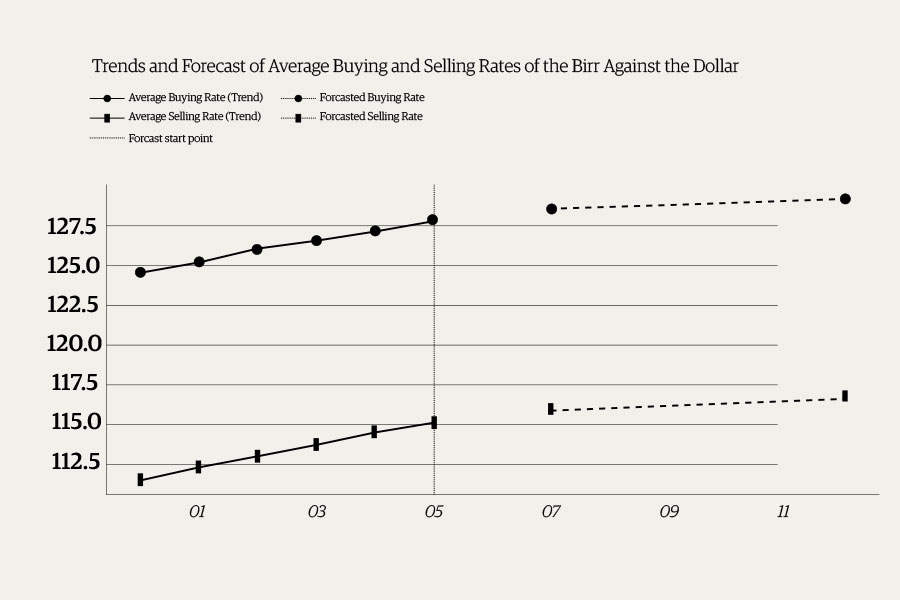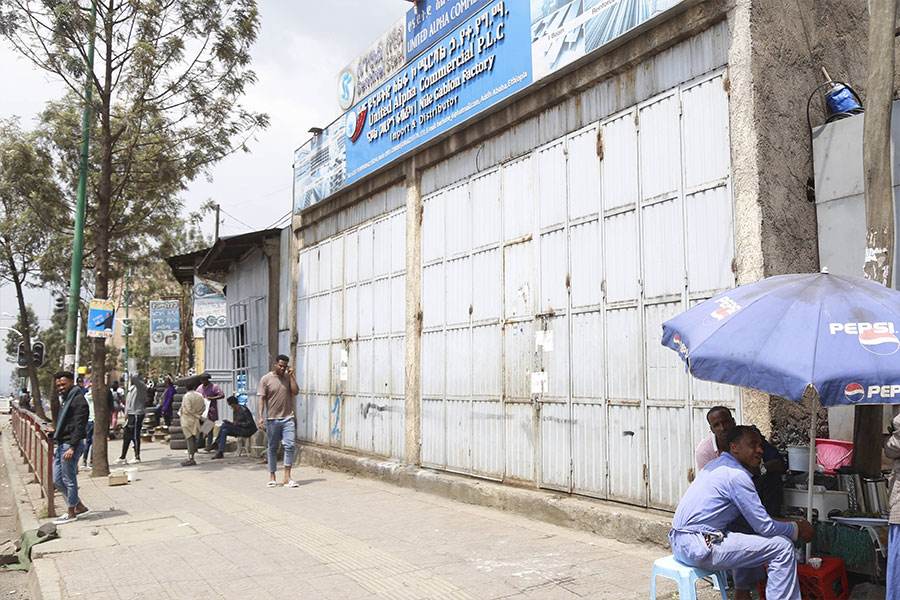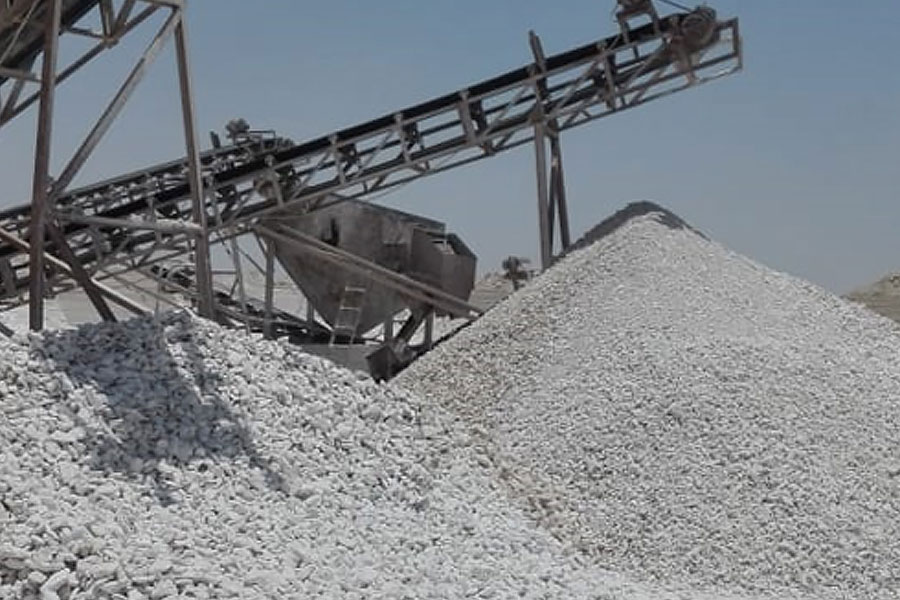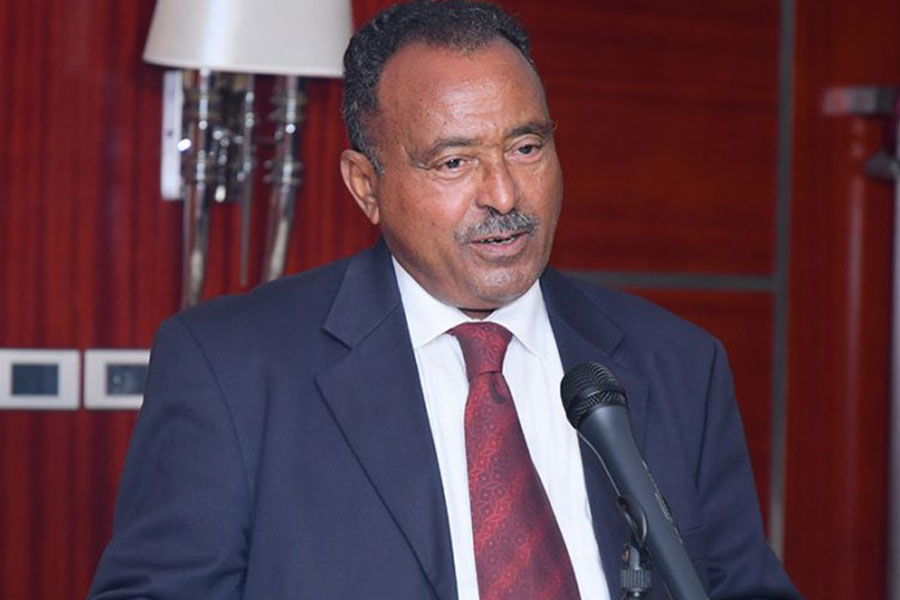
Viewpoints | Jun 08,2019
There are hints of normalcy emerging as the Endowment Fund for Rehabilitation of Tigray (EFFORT) — a conglomerate encompassing a diverse portfolio of 31 companies — has begun to regain its footing in the sweeping vista of Ethiopia's turbulent northern region. This comes nearly three years after the onset of a civil war that claimed the lives of hundreds of thousands, destroyed infrastructure, and disrupted the social fabric.
The resurgence of EFFORT has come in gradual strides, following a string of decisive rulings by judges of the Federal High Court. In the most recent judgment delivered on August 4, presided over by judges Fatuma Aman, Sintayehu Bercha, and Abdu Ibrahim, half a dozen companies and not-for-profit organisations won their autonomy. The landmark ruling permits companies such as Mega Printing Plc, Dejena Chemical Engineering Plc, and Abergele International Livestock Development Plc to access their previously frozen bank accounts, enabling them to regain autonomy from their former caretaker, the board of trustees.
In the wake of the upheaval caused by the war, the Ministry of Justice had assigned the Tigray Development Association (TDA), Tigray Disabled Veterans Association (TDVA), and Relief Society of Tigray (REST) to a board of trustees. The granting of autonomy to these entities marks a significant departure towards normalcy between Addis Abeba and Meqelle.
Atsbaha Aregawi, deputy chairman of the board and one of the 11 founding members of TDVA, spoke of the renewed hope for their members. Established in 1996, the Association aimed at supporting disabled veterans of the civil war fought to topple the military-Marxist regime of Mengistu Hailemariam (Col.), funded by annual donations of up to 40 million Br. The Association's financial lifeline extends beyond grants from local and international sources; it also sustains its operations through real estate construction and revenue from rentals, such as the Yeha Building, built on a prime location on Ras Mekonnen Avenue, opposite the Addis Abeba Stadium.
However, Atsbaha recalled the political turbulence the war brought, resulting in a considerable loss for the Association. Its operations were stymied, leaving its 30,000 members without support during the ensuing siege the Tigray Regional State was under, a circumstance he described as "disheartening."
Several of the companies under EFFORT had their managment transferred to the Commercial Nominees, a state-owned managment firm that paid a monthly one million Birr in fees before reclaiming independence.
Goyetom Yibrah, head of EFFORT’s Investment & Development, disclosed that a committee has been formed to oversee reclaiming the companies` assets and plans to hire an independent auditor.
"Nine out of the 15 companies have submitted reports on the status of movable and immovable assets," he told Fortune.
One such company is Sheba Leathers Industry, a giant of the domestic leather industry that, at its peak, processed 6,000 leathers daily. The factory, nestled in the town of Wukro, 45Km from Meqelle, after it was incorporated with a 94 million Br initial capital. In the two years beginning in 2018, Sheba Leather exported 15,000 pieces of bags to the US and Europe markets.
The war, however, was not kind to Sheba. As Tesfat Fishaye, the deputy manager, bemoaned, the war destroyed over 10,000 export-standard bags, dealing a blow to the company’s operations. However, the full extent of the losses incurred during the war remains unclear, with current estimates in the billions of Birr.
With the war between the federal government and its allies against armed forces in Tigray now over and the company back under its management's control, Sheba is weighing the possibility of seeking loans and foreign currency access to resume its operation. However, a sombre Tesfat conceded that the company had been unable to retain its workforce of 761 or pay their salaries during the war. The machinery left undamaged presents a glimmer of hope, but many workers remain unaccounted for, their whereabouts unknown.
"We don’t even know where they are," he told Fortune.
Mesfin Industrial Engineering (MIC), managed by Tesema Giday, suffered extensive damage during the war, with losses estimated at two billion Birr. Despite these challenges, Tesema is hopeful about resuming operations at half capacity. This, he believes, is made possible by reclaiming managment, which also allows them to submit loan proposals and requests for foreign currency allocations.
The battle to wrestle the companies from the Commercial Nominee began four months ago when Beyene Mikru, CEO of EFFORT, submitted a formal request to the Ministry of Justice, urging for the managment of these entities to be returned to EFFORT.
Managed by Yeju'alga Jemere, the company's managment declined to comment on the ruling, dismissing it as an "internal matter" that "will be dealt with accordingly."
Founded in 1995, EFFORT was envisioned as a public endowment company with the mission to rejuvenate the war-ravaged economy of the region and champion industrialisation. A substantial initial investment of 2.7 billion Br allowed the conglomerate to invest in various sectors, ranging from mining and construction to agriculture, transportation, and textiles.
Initially, a 25-members council chaired by Tewolde Weldemariam, then vice chairman of the TPLF, installed a board of directors led by Seyee Abraha and included Sebhat Nega and Abadi Zemo. These are all senior leaders of the TPLF, a senior member of the now-defunct ruling coalition, the EPRDF. However, the legacy and intertwining of these companies with the TPLF, the regional state’s governing party for nearly 30 years, has been a point of contention.
Yonas Misganaw, a former lawyer at the Authority for Civil Society Organisations, opined that the genesis of the problem lay in this affiliation. Although they are registered under the Authority, endowments such as EFFORT were formed before the regulation was set and did not comply with the rules, according to him. He argued that disentangling themselves from their political affiliations would help these companies start afresh.
PUBLISHED ON
[ VOL
, NO
]

Viewpoints | Jun 08,2019

Money Market Watch | Oct 06,2024

Agenda | Oct 09,2021

Fortune News | Oct 13, 2024

Fortune News | Feb 05,2022

News Analysis | Jan 19,2024

Commentaries | Oct 14,2023

Agenda | Sep 14,2024

Viewpoints | Aug 10,2024

Obituary | Jun 15,2025

Dec 22 , 2024 . By TIZITA SHEWAFERAW
Charged with transforming colossal state-owned enterprises into modern and competitiv...

Aug 18 , 2024 . By AKSAH ITALO
Although predictable Yonas Zerihun's job in the ride-hailing service is not immune to...

Jul 28 , 2024 . By TIZITA SHEWAFERAW
Unhabitual, perhaps too many, Samuel Gebreyohannes, 38, used to occasionally enjoy a couple of beers at breakfast. However, he recently swit...

Jul 13 , 2024 . By AKSAH ITALO
Investors who rely on tractors, trucks, and field vehicles for commuting, transporting commodities, and f...

Sep 6 , 2025
The dawn of a new year is more than a simple turning of the calendar. It is a moment...

Aug 30 , 2025
For Germans, Otto von Bismarck is first remembered as the architect of a unified nati...

Aug 23 , 2025
Banks have a new obsession. After decades chasing deposits and, more recently, digita...

Aug 16 , 2025
A decade ago, a case in the United States (US) jolted Wall Street. An ambulance opera...